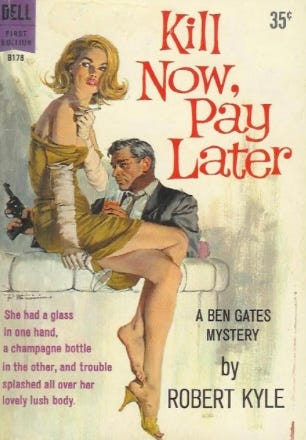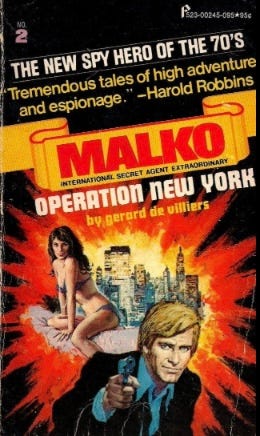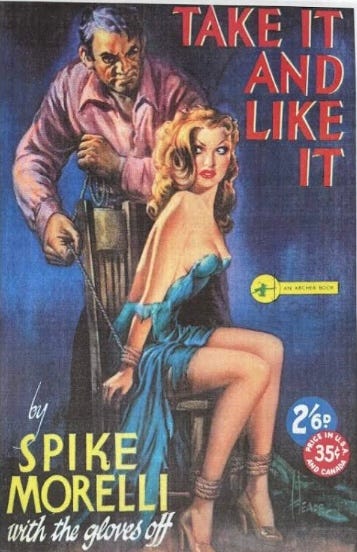FUCK GENRE
post-genre
extra-genre
anti-genre
[prefix]-genre
genre escaping genre
It has always been a kind of aesthetic goal of sorts to write literature that is disguised as genre fiction. I don’t know why. I think I derive some kind of pleasure from thwarting anyone out there who thinks they’re too good to read genre fiction. So I want to hide certain nutritious qualities inside a chocolate candy coating. Or, “a spoonful of sugar makes the medicine go down.”
I like the idea of a writer inhabiting a genre, then leaving that genre and taking some trappings of genre with them but overall wrecking the genre they leave. Genre burglars who ransack the silverware and the jewelry box. Something tricky or deceptive about it.
Maybe my attraction from this just sort of comes from the fact that often when I sit down to write some fiction, it always comes out in a genre mould. I’ll think of writing something high minded and literary, spiritual even, and what comes down the conveyor belt is something with a lot of murders and sleaze and mystery. Something with a plot. Which a lot of literary types would be the first to admit they hate (plot that is). So it’s a half-assed excuse for my own writing limitations. Also, I want people to feel some sort of excitement or pulse pounding while reading my work. Crime, suspense, thriller, spy. And then amidst the genre trappings there is something enduring. But you can take that or leave it. If all you want is to be taken on an escapist roller coaster ride, it can do that too. It doesn’t really matter because you’re probably never going to read it anyway.
Since we’re talking about plot I will make the claim that writing a genre novel with a plot is far more difficult than writing a wide-ranging examination of an aimless young person’s character that doesn’t go anywhere. Which is what a lot of literary fiction (or autofiction, or whatever) seems to amount to. Character and voice over plot. There’s a prejudice against plotted books in some corners of literary wonderland. “Plots are so formulaic,” these people complain. Novels shouldn’t be like tv shows, the argument seems to run. I haven’t got the time to do a full scale examination of all the trends of writing from the past twenty years but the notion seems to exist that plotlessness is closer to an honest replication of real life that plotted genre fiction could ever be. Storytellers select from this plotless mass chunks of life that, in the case of genre, correspond to plot conventions and rhythms. This angers some people artistically.
The elephant in the room with genre or post-genre discussions is that in many ways, genre = $$$. People get into genre fiction because the pathways to industry success are beaten down quite well by the hordes of people trying to strike it rich. Literary writers, as opposed to genre writers, are doing it for reasons that are materially more pure, or so the story goes.
So this departure from genre, or this opposition to genre which still maintains characteristics of genre, is a complication that the writer introduces that might still keep one finger in the pie, so to speak. You can criticize the genre while still trying to reap rewards from belonging to the genre. There might even be some genre trickery (the deja vu in writing this is incredible, off the charts red lining, like high on the deja vu Richter scale…)
There’s also a historical dimension, or a dimension that is conscious of the history of popular writing from the prior centuries. I’ll use crime fiction since that seems to be all I am capable of talking about. I like reading about the midcentury crime writers, or thriller writers, or mystery writers. Or whatever you want to call them. They might not have thought of themselves in quite these terms. Patricia Highsmith, a very unpleasant yet expert writer of psychological suspense fiction and a person of fascination with me recently, did not feel comfortable being called a crime writer. It seems like the point of departure for me, the jumping off point, is based in the mid 20th century. Or take sci fi. When I think of sci fi my knowledge of current sci fi is really limited. Genre in its most contemporary form is not what I contemplate. The colorations of genre I acknowledge were set in the years before I was born, or in my childhood. In many ways I am still stuck in the video store of my youth, going from room to room and checking out the covers on the boxes: action, horror, sci fi, drama. I am placing blind spots on myself, I’m sure. I know that Amphetamine Sulphate anthology Human Rights would represent a more cutting edge up to the minute variant of sci fi. I want to read that book but it is almost superfluous to my thoughts about genre as it manifests itself right now. Also I have a reluctance to spending money on an Amphetamine Sulphate book because of their co-signing of Peter Sotos as an artist. But that’s another discussion.
My friend Gabriel Hart when I interviewed him in 2021 said that genre was a tool of bookstores to see where books needed to be shelved. That’s probably true. I don’t know where this fixation on genre comes from, or what to do with it. In a flurry of tweets from the most recent AWP in Seattle I saw a photo someone had taken of an embroidered pillow at a booth that read “FUCK GENRE.” Well alrighty then. You know what? I agree. Fuck genre. Let’s get away from genre’s worst aspects while still wearing a genre mask to throw off the gullible. Let’s criticize the notion of genre.
A favorite anecdote that touches on this is the response that Robert Smith of the Cure gave to an interviewer who asked about the band’s detours into “goth music.” Smith said (paraphrasing) “I just thought we were making Cure music.” To the practitioners, they are not adhering in a self-conscious way to the genre requirements, they are just making music they want to make and treating that like it’s the only important genre. Being themselves. And letting other people — record companies, journalists, people sorting records at the record store — label it after the fact.
I like the idea of genre being a head-fake. I like that I published a crime novel and a good cross-section of readers will never pick it up because, full of self-importance, they sniff, “I don’t read genre fiction.” I don’t need those people. It’s shooting my self in the foot to avoid the kind of promotional haxy-whammy that would hypnotize them into buying my book, sure. But I’m going to die in obscurity like all the rest of us. Paradoxically, I don’t want to be a rarefied poet and I don’t want to be a whore.
***
Recent LISTENINGS:




I like that comment about plot. That "literary" types don't like plot because life is plotless and literature should be close to "life" as it really is... Well... I don't read to enjoy a carbon copy of real life, thank you very much. I read to be pulled out of real life into a world of imagination or distortion of reality. That reminds me of these arty, unwatchable movies that capture the minutiae of a housewife's life. Hey, give me "Jaws" anytime, lol! I wish the notion of genre not being literature was long dead and buried. Anybody who snubs John Le Carré because he wrote "spy novels" is a blooming idiot.